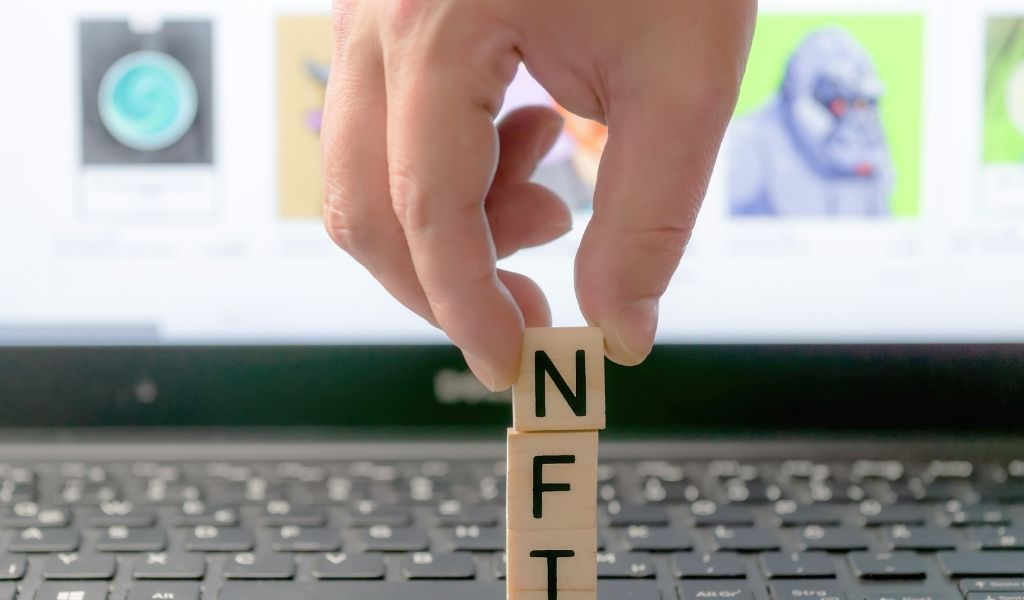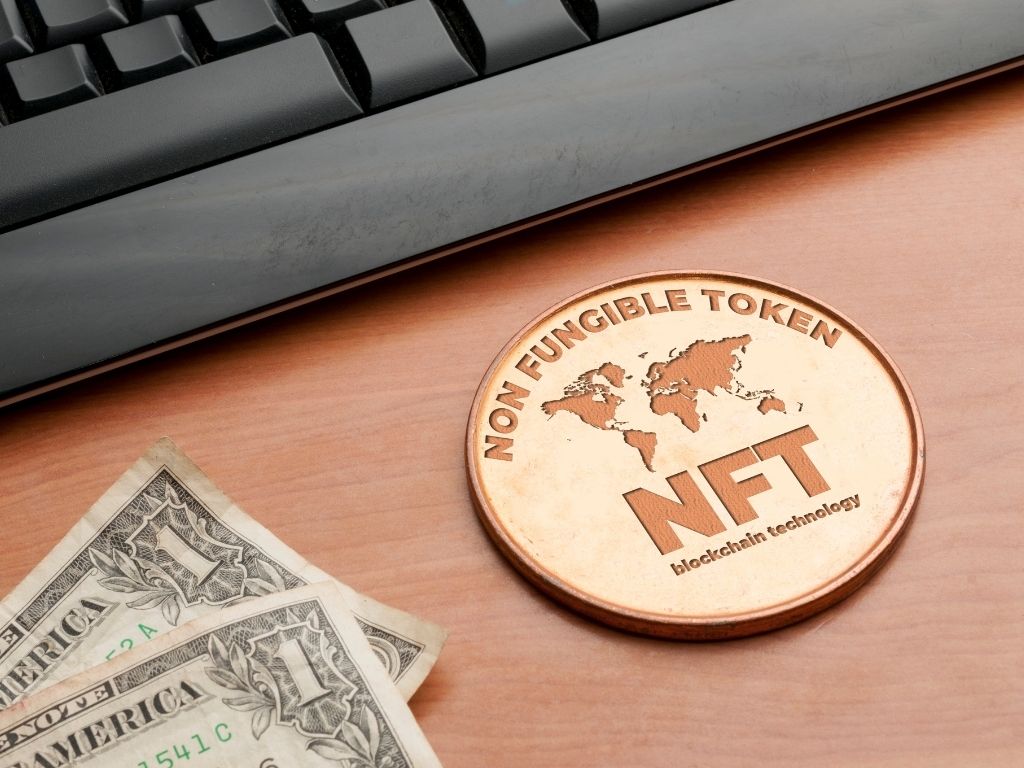What Creators and Investors Should Know About NFT Taxes
There are signs that the digital economy as a whole is entering the next phase of development. Non-fungible tokens, or NFTs as they are commonly known, have swept the globe. The blockchain is the foundational technology for NFTs. It’s a database that isn’t controlled by a single entity. Because of this quality, NFTs are one-of-a-kind digital data with one-of-a-kind ownership. Governments all across the world have assumed responsibility for regulating digital assets. This is in accordance with the existing Internet architecture. Is it possible for non-financial transaction taxes to become a progressive policy for innovators and thought leaders? We’ll have to wait and see.
Similarly, there is a common awareness of the advantages of NFT taxation. There are periods when young digital natives dictate consumption and manufacturing trends. Blockchain technology, according to governments, can be regulated. This is true as long as suitable, standardized NFT norms exist. Let’s begin by understanding how NFTs function before moving on to today’s topic about NFT taxation.
What exactly are taxes?
Governments (national, state, and municipal) collect taxes to fund infrastructure development. Security forces, drinkable water, basic education, and fundamental health care are just a few examples. Digital infrastructure, such as data centers, might also be included. Taxes have a significant impact on the design and destiny of an economy. Governments, for example, spend billions each year on creating and maintaining services. They are used by the less fortunate members of society. Consider taxes as a subsidy for people’s transportation and communication expenditures. With time, private corporations have begun to assume societal functions with the passage of time.
NFT Taxes are a type of tax that is imposed on non-financial transactions
Tax authorities and governments all over the world are looking at NFTs. There is a strong push to levy taxes on NFT sales and transactions within a country. The Indian government, for example, levied a 30% tax on the sale and acquisition of digital assets. This is true, albeit more clarity on the actual mechanism is needed. Similarly, the Securities and Exchange Commission of the United States of America intends to regulate the NFT environment. According to its interpretation and definitions, this is the case. As a result, we must recognize that every discussion about NFT taxation is still fluid. Individuals and communities do not need to be alarmed or depressed about it.
NFT Taxes: Aspects for Artists
When an artist mints his or her art into an NFT in a typical NFT transaction on the blockchain, it can be done at zero cost or for a price, depending on the NFT service provider. Artists, for example, have pals who work as developers. They assist them in transferring their artwork to the blockchain. Similarly, some artists are unlucky. As a result, they rely on marketplaces or white-label services. For this minting service, they demand a fee. You don’t have to be concerned about this tax phase as an artist.
Artists aren’t paid through a typical bank when they sell their work. This is due to the fact that the blockchain is a worldwide piece of software with no physical boundaries. As a result, artists in the country are able to get funding from collectors. This is the allure of a global market that operates 24 hours a day, seven days a week. As a result, artists should keep in mind that if they are asked, they should have a list of their earnings ready. This information is already automated and stored in a secure manner via the blockchain. The crucial question is whether the tax must be paid in fiat currency.
As a result, you must ensure that you convert your earnings into fiat cash using an exchange. Second, artists might make money off of royalties on the secondary market. As a result, each time a sale occurs, the original artist will be required to notify the government.
NFT tax elements for collectors
NFT taxes appear to be something worth bothering about as enthusiastic collectors. This is due to the fact that many collectors are also speculators. This differs from those who regard NFTs as works of art to be saved and displayed on the blockchain. NFT taxes may not be very burdensome to collectors of a certain breed. They have no intention of selling. There is no way to apply a capital gains tax if a collector never sells. This is based on the price of the artist’s original artwork that was sold.
Governments claim a percentage of the transaction value, which NFT collectors should be aware of. NFT taxes are very similar to taxes put on real-world products in many cases. For example, if you purchased an original piece of art from the artist, you will be required to pay a tax when you resell it to someone else. The complication appears to exist because tax authorities must trace NFTs all around the world. This is the primary reason why several nations have advocated for a global tax on non-financial transactions.
It’s also important for collectors to keep in mind that blockchain technology is transparent and monitors ownership. Tax authorities may collect a part of the NFT if you buy something from a budding artist. Similarly, what if your NFT isn’t a work of art? NFTs, for example, can be configured to have attributes such as exclusive access to events. How will such non-financial transactions be taxed? They’re not the same as an NFT piece of art. But, at the same time, they have commercial worth.
What about taxing for more complicated NFT works? For example, consider a regenerative NFT that alters in response to blockchain interactions. As a result, NFT collectors should keep in mind that taxes are not to be overlooked as we go further ahead. In a new economy, it’s all about recovering your place.
Also, read – What exactly is NFT Music? How to Purchase and Sell Them
Conclusion
Today, we stand at the crossroads of a new era in global markets and economics. Everywhere you look, there is intricacy. It can become overwhelming after a while. It’s easy to understand how stressed governments and tax agencies are. For starters, people are aware that blockchain allows for the creation of a globally distributed database. Second, they make it a point to employ technology to improve their own processes.
Taxation is a necessary component of our economy. As previously stated, they play a critical role in transferring surplus from one sector of the economy to another. At the moment, NFT taxes appear to be difficult. This is due to the fact that we are still in the early phases of a multibillion-dollar global digital economy. NFTs aren’t going anywhere. Taxation is the same way. Artists and collectors should familiarize themselves with the non-profit taxation situation.
Stay informed with daily updates from Blockchain Magazine on Google News. Click here to follow us and mark as favorite: [Blockchain Magazine on Google News].
Get Blockchain Insights In Inbox
Stay ahead of the curve with expert analysis and market updates.
latest from tech
Disclaimer: Any post shared by a third-party agency are sponsored and Blockchain Magazine has no views on any such posts. The views and opinions expressed in this post are those of the clients and do not necessarily reflect the official policy or position of Blockchain Magazine. The information provided in this post is for informational purposes only and should not be considered as financial, investment, or professional advice. Blockchain Magazine does not endorse or promote any specific products, services, or companies mentioned in this posts. Readers are encouraged to conduct their own research and consult with a qualified professional before making any financial decisions. The featured image used is just a creative depiction of the title and it does not intend to hurt sentiments of any person or institution. If it hurts anyone sentiments, please do not hesitate to reach out to Blockchain Magazine.

 Bitcoin
Bitcoin  Ethereum
Ethereum  XRP
XRP  Tether
Tether  Solana
Solana  USDC
USDC  Dogecoin
Dogecoin  Cardano
Cardano  Lido Staked Ether
Lido Staked Ether  TRON
TRON  Chainlink
Chainlink  Wrapped Bitcoin
Wrapped Bitcoin  Wrapped stETH
Wrapped stETH  Sui
Sui  Avalanche
Avalanche  Stellar
Stellar  Hedera
Hedera  Toncoin
Toncoin  Shiba Inu
Shiba Inu  LEO Token
LEO Token  Hyperliquid
Hyperliquid  Bitget Token
Bitget Token  WETH
WETH  Litecoin
Litecoin  USDS
USDS  Polkadot
Polkadot  Bitcoin Cash
Bitcoin Cash  Ethena USDe
Ethena USDe  MANTRA
MANTRA  Wrapped eETH
Wrapped eETH  Uniswap
Uniswap  Ondo
Ondo  Pepe
Pepe  Monero
Monero  NEAR Protocol
NEAR Protocol  WhiteBIT Coin
WhiteBIT Coin  Aave
Aave  Mantle
Mantle  Aptos
Aptos  Dai
Dai  Official Trump
Official Trump  Internet Computer
Internet Computer  Ethereum Classic
Ethereum Classic  Bittensor
Bittensor  Cronos
Cronos  OKB
OKB  POL (ex-MATIC)
POL (ex-MATIC)  Gate
Gate 




